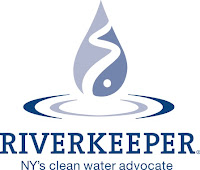Gasland—the award-winning documentary about fracking—has a timely message for New York State
Explore the connection between gas drilling and drinking water. Discuss the current status of New York State decisions on fracking with a Riverkeeper attorney who represents our drinking water and the environment.
RiverTalks presents a screening of Gasland, the award-winning documentary about fracking, followed by a conversation with Riverkeeper’s Kate Hudson, on Saturday, March 10, 7:00 PM, $10 / $5 for teachers, students, and seniors.
The largest domestic natural gas drilling boom in history has swept across the United States. The Halliburton-developed drilling technology of “fracking” or hydraulic fracturing has unlocked a “Saudia Arabia of natural gas” just beneath us.
But is fracking safe? Could it happen here?
But is fracking safe? Could it happen here?
New York State’s citizens have barraged state environmental officials with an unprecedented 60,000 comments on this issue, and just last week the state Supreme Court upheld the right of two towns to prevent fracking for natural gas in their town. Yet, New York State’s DEC says they will release the final phase of work on their proposal to allow hydrofracking of natural gas in spring 2012.
On the eve of New York State’s decision making on this issue, Beczak Environmental Education Center presents Gasland, an award-winning documentary about frackiing, followed by a conversation with Kate Hudson, the Riverkeeper attorney who is challenging New York State’s Department of Conservation.
ABOUT GASLAND
Gasland is a Sundance award-winning documentary on the surprising consequences of natural gas drilling. When filmmaker Josh Fox is asked to lease his land for drilling, he embarks on a cross-country odyssey uncovering a trail of secrets, lies and contamination. A recently drilled nearby Pennsylvania town reports that residents are able to light their drinking water on fire. Variety magazine calls Gasland “...one of the most effective and expressive environmental films of recent years.”
Gasland’s Honors include:
- Nominated for Best Documentary OSCAR 2011
- Won EMMY for Best Non Fiction Directing
- Won Planet Defender Award from Rock the Earth
- Won Manayunk Eco-Champion Award (Josh Fox)
- Won Environmental Media Award for Best Documentary
- Won John Lennon/ Yoko Ono Peace Prize 2010 (Josh Fox)
- Won Sundance Film Festival Special Jury Prize
- Won Big Sky Film Fest Artistic Vision Award
- Won Yale Environmental Film Fest Grand Jury Prize
- Listed as one of Current TV 50 Docs to see before you die
- Listed as Outside Magazine 25 most influential Docs of all time
ABOUT FRACKING IN NEW YORK STATE
A rocky formation under parts of New York State, the Marcellus Shale, holds some of the largest natural gas reserves in the nation. To break up shale formations and release the gas, energy companies use a process called high-volume hydraulic fracturing, or hydrofracking, which involves injecting millions of gallons of chemically treated water underground..
Since 2010, New York State has created a moratorium on fracking. The Independent Oil and Gas Association of New York wants the state to speed its decision so that new drilling permits can be issued this year.
Major environmental groups including Riverkeeper have hired their own technical experts to review the state proposal argue that the state is far from done. Looming large, they say, is the lack of a detailed plan to dispose of the millions of gallons of wastewater per well that the new drilling will produce.
If the State Department of Environmental Conservation issues a final Supplemental Generic Environmental Impact Statement on hydrofracking this spring, it will lead to a flawed proposal, according to environmental group Riverkeeper.
Watershed Program Director Kate Hudson said there would be “glaring gaps” in the process.
“In light of the fact that they have 60,000 comments to read and respond to, we are astonished that they are proposing to do that and what it tells us is that they are going to be releasing a flawed document that does not address many of the issues that we and other people have raised and this will only ultimately lead to further delays,” Hudson said.
Those delays would come in the form of lawsuits filed by Riverkeeper and others challenging the findings of the environmental documents.
ABOUT KATE HUDSON
Kate joined Riverkeeper in February 2011 as the NYC Watershed Program Director after nearly 25 years spent in Government protecting the environment of New York State.
Kate has served as Assistant Attorney General in New York State’s Department of Environmental Conservation’s Environmental Protection Bureau. She was a member of the Bureau’s Hudson River Team, and was responsible for preparing the State and Federal Trustees natural resource damage claim against General Electric, for their contamination of the Hudson River with PCBs.
Building upon that experience, in 2007, Kate rejoined the NYS DEC where she created and staffed a ten person unit dedicated to pursuing claims for natural resource damages against a wide variety of polluters for their discharges of hazardous substances and petroleum. As Director of the unit, she developed policy and budgetary documents in support of the Department’s natural resource initiatives, represented the Department in the development of claims, coordinated assessment and litigation activities with Federal Trustee agencies and Indian Tribes, and negotiated settlements with responsible parties.
Kate is a long-time resident of Gardiner, NY, living in the shadow of the Shwangunk Ridge, where she is an active outdoorswoman who enjoys hiking, biking, skiing and rock climbing. She is also an experienced sailor, who races on the Hudson River, and has twice competed in the Race around Long Island.







No comments:
Post a Comment